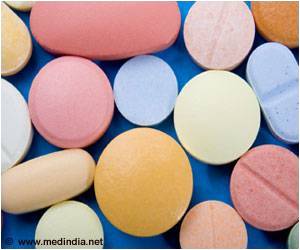New research has found that fructose, the sugar often blamed for the obesity epidemic, does not itself have any impact on an emerging marker for the risk of cardiovascular disease known as postprandial triglycerides.
However, overconsumption of calories from fructose can have substantial adverse effects on health, said Dr. John Sievenpiper, a researcher in the Clinical Nutrition and Risk Factor Modification Centre of St. Michael's Hospital."This is more evidence that fructose has adverse effects only insofar as it contributes to excess calories," said Dr. Sievenpiper.Fructose, which is naturally found in fruit, vegetables and honey, is a simple sugar that together with glucose forms sucrose, the basis of table sugar. It is also found in high-fructose corn syrup, the most common sweetener in commercially prepared foods.
Dr. Sievenpiper conducted a meta-analysis of existing studies on fructose and its impact on the level of triglycerides, a fat found in blood, after eating. Testing for these triglycerides—in addition to the standard testing for blood glucose levels—is becoming more common for people trying to determine their risk for cardiovascular disease, although health care professionals remain divided on its usefulness.Dr. Sievenpiper's results appear in the January 2014 issue of the journal
Atheroclerosis. "Fructose doesn't behave any differently than other refined carbohydrates," he said. "The increases you see are when fructose provides extra calories.
Source-Eurekalert













